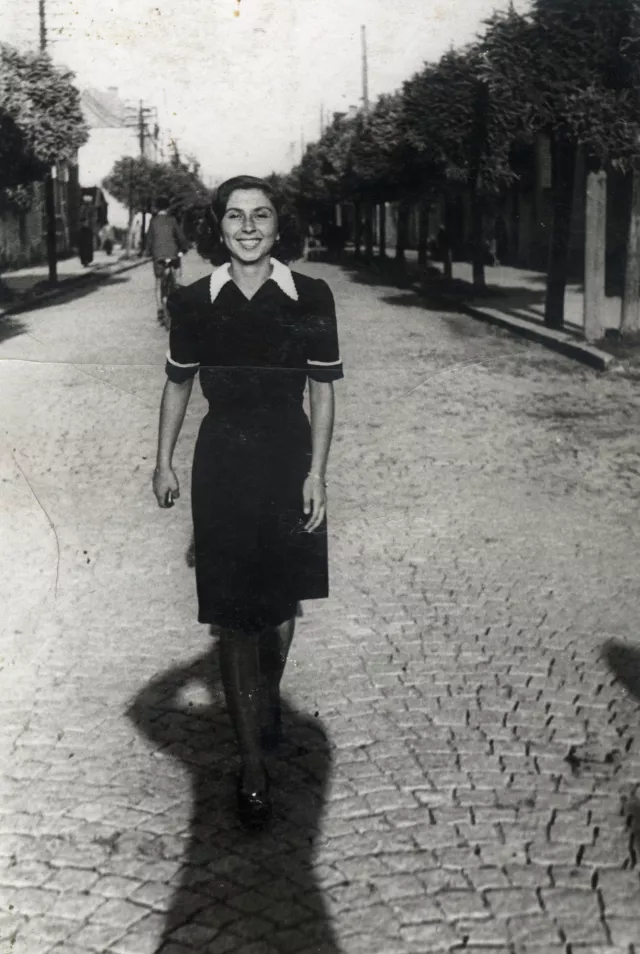Here I?m in the street in front of our high school. On the back of the photo I have made an inscription in ink: ?A smile with a dimple. Sofi. August 1944. Pazardzhik.?
I?m wearing my blue school uniform. I remember that we used to have two uniforms ? a white one and the other one was blue. You can see the shadow of the photographer but I don?t know who he was. Even during the Holocaust we kept on smiling.
Irrespective of the restrictions, we found a way to keep our morale high because life had to go on. When there was a ban on our going out, we sneaked through the doors between the houses and managed to share the news. The code our fathers used to share the news about the events was very funny. They called the Englishmen, for example, 'algouzha' - a needle. When Tripoli fell, a very important battle, because of the liberation of Africa, they didn't say Tripoli fell but said, 'Las tres fustas fell' 'Fustas' means skirts and 'Las tres fustas' literally means 'the three skirts fell' [a pun]. That was how the news was announced. They listened to Radio London, and Radio Moscow. And all the news was shared the following day.
One of the girls we accommodated in our house got engaged. Her name was Ginche Farhi. We prepared the sweets, and guests came. The fiancé of that girl, whose name I can't remember, had ordered a lot of 'mavlacheta:' hard sweets like lollipops and they were delivered by a courier. The whole house was decorated with them because on that day we celebrated Purim as well. The wedding took place later. One of my classmates, a Bulgarian and a communist, even told me, 'I can't understand you! You are laughing, there are celebrations, noise.' Yes, life was going on in spite of everything but people were finding it strange and were restricting us even further that way. We were young, we were persecuted but so what - we were forbidden to laugh aloud or what?
Sofi Danon-Moshe - 'a smile with a dimple'
The Centropa Collection at USHMM
The Centropa archive has been acquired by the United States Holocaust Memorial Museum in Washington, DC.
USHMM will soon offer a Special Collections page for Centropa.
Academics please note: USHMM can provide you with original language word-for-word transcripts and high resolution photographs. All publications should be credited: "From the Centropa Collection at the United States Memorial Museum in Washington, DC". Please contact collection [at] centropa.org.



















